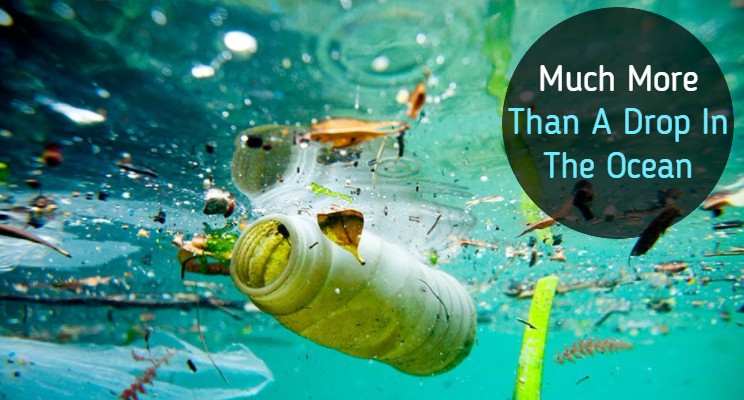Why 150 Million Tons of Plastic Pollution
Is Much More Than a Drop in the Ocean
To many people watching Sky News and their #OceanFree Campaign, you would think that removing plastic from the oceans will be enough to resolve the problem. Sadly, this is not the case.
The oceans ability to provide food from fisheries and aquaculture is subject to climate change and the resultant ocean acid and oxygen levels. Rising CO2 is just one issue. Rising temperatures and reduced oxygen levels are issues altering the ocean ecosystems. These have a serious impact on marine life.
The effect is both regional and global. They include the displacement of fish stocks that were in abundance not long ago. The life expectancy of shellfish, affected by rising acid levels, who are unable to adapt or migrate, has reached a point where they are no longer available in many regions that previously relied upon them for a living.
Even fish stocks who have been able to migrate are subject to accelerated overfishing, loss of habitat and increasing pollution. There are now instances where there is an increase in dead zones in the ocean. These are exacerbated by an increase in toxic algal blooms.
I have watched documentaries where individual groups are trying to slow the declining coral reef ecosystems. It seems a futile to attempt to rebuild the damage caused by coral bleaching, causing the total collapse of coastal fishing. Even replacement with fish farming (aquaculture) is likely to be affected by an increase in tropical storms and flooding.
What can we do?
Even if we stop throwing plastic waste into the ocean today, the gyres in the oceans will continue to accumulate more plastic over the next 20 years. The damage has already been done. We can reduce the stresses, but not eliminate them, by lowering ocean pollution. in 2014 we produced 311 millions tonnes of plastic. This is expected to double by 2030. I fear that COP23 in Bonn was nothing more than a talking shop, kicking the pollution can down the road. The lead has to come from the consumer of fish and single-use plastic.
There is small option to consider changing fish catching pressure, or the rotation of fishing regions. We can target or lower demand with taxation on certain species. It does require some dynamic management with discretion. Legislation will not resolve the matter.
Further support for aquaculture may help, but that may only resolve the short-term supply side. There is the inevitable risk of political infighting as fish stocks migrate. There may even be fish wars.
A far more deadly killer remains. The acid and oxygen levels of the oceans has already done so much damage and there is not much we can do at this point. But can you seriously risk ignoring the problem and hope it will go away?
What is your view? Leave a comment below and join the Biomassive Revolution
[TheChamp-FB-Comments style=”background-color:#f7f7f7;” title=”Leave a Comment”]
Consortium of Irish Biomedical companies in €3m joint venture to deliver biodegradable implants from 2nd generation biochemicals.
Three Irish biomedical companies Cellulac Limited, Venn Life Sciences Holdings Plc (“Venn”) (AIM: VENN) and Bipharmed West Limited today are pleased to announce a joint venture to pursue the development of biodegradable human implants. This consortium brings...
Irish Start-up Cellulac wins €2.8M from EU Commission for Biorefining Project.
EU grant to Cellulac indicates the high-commercial potential of their product - Sherlock Galway based Greentech company, Cellulac, has received a grant for a record €2.8m from the European Commission to commercialize its biorefining technology that converts...



